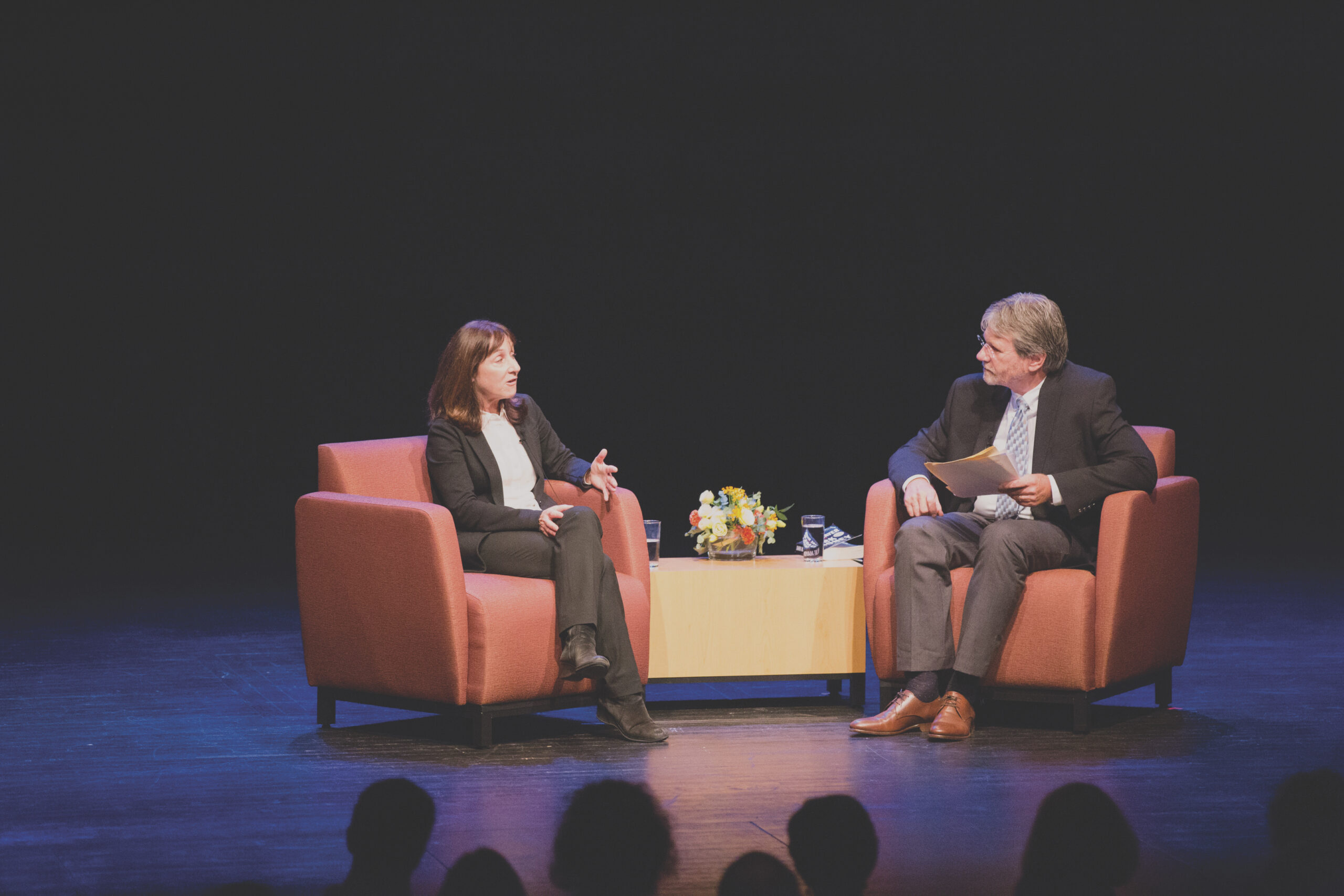‘Dark Money’ author discusses book, investigation of billionaire Kochs
September 29, 2017
 Ann Basu
Ann BasuUndetected for years, a former New York City police commissioner and his staff sifted through New Yorker staff writer Jane Mayer’s past. From old boyfriends to past publications, the team was looking for dirt that would defame Mayer much more than her recent exposé tarnished the reputation of their employer—the Koch brothers.
“[The police commissioner] had set up a kind of war room, and they were going through everything in my life,” Mayer said. “They came to the conclusion that I was a plagiarist and they were going to bring me down on that.”
Mayer learned about the false accusation the night before a story about the Koch brothers was going to run and scrambled to collect statements from those writers whose works she was accused of plagiarizing. She was successful—the writers defended her, the story was cut and Mayer continued her own investigation into oil billionaires David and Charles Koch.
Mayer shared these intricacies and perils of writing her latest book, “Dark Money: The Hidden History of the Billionaires Behind the Rise of the Radical Right” at a discussion in Pickard Theater Saturday afternoon. Prompted with questions by Bill Nemitz, a columnist for the Portland Press Herald and Maine Sunday Telegram, Mayer spoke about the pervasive power of the Koch brothers’ money in regards to her own privacy and American politics.
“I was walking around Lincoln Center and I looked up at the theater and there was his name—David H. Koch,” Mayer said during the talk, noting how well she thought she knew the New York and theater scene because of her artist parents. “I thought, really? I bet most people in New York have no idea who he is. I thought I’d go see if I could follow the money.”
In years of following the money, Mayer learned how deeply the Koch brothers spurred the speedy and organized rise of the Tea Party in 2010, as well as influenced opposition to Democratic policies such as those regarding climate change, healthcare and taxes. Following David Koch’s defeat in the 1980 election for vice president on the Libertarian ticket, the Koch brothers decided to reassess where they spent their money.
“[Charles Koch] looked at [conventional politicians] as actors in a play,” Mayer said. “He decided … the thing you had to do was write the scripts. You needed to provide the themes and the words to the actors who were the politicians.”
Academia was one of the primary ways the brothers tried to embody this role of playwright.
“They needed to fund the intellectuals to get the raw product, refine them into policies in think tanks and then take those policies and distribute them to pressure groups and advocacy groups that would push them onto politicians,” Mayer said. “They’re funding over 350 programs—350 colleges and universities—very much with an eye towards it being where the future is formed: the next generation they want to create of libertarians.”
Despite how established the Koch brothers and their money have become, Mayer has been the first to truly question them.
“My guess is they do believe what they think they believe,” Mayer said, “[but] it hasn’t been subjected to a lot of scrutiny in recent years.”
Mayer’s scrutiny, according to Professor of Government and Legal Studies Janet Martin, is top-notch.
“As you look at the end of the 20th century and the beginning of the 21st century, she’s got the most detailed accounting … that I could ever imagine,” Martin said. “It’s almost like you read her book and you feel like you’re in an archive and you’re going through, and going ‘oh wow,’ and discovering things you didn’t know and how the pieces all fit together.”
“What [Mayer’s] proven with this book is, yes, journalism is still very much alive, very vibrant and very crucial in these times to have people who are willing to, number one, seek the truth and, number two, speak it,” said Nemitz in an interview with the Orient.
A number of lecture attendees were reading “Dark Money” as part of various local book clubs and praised the way it revealed the behind-the-scenes of political movements and decisions.
“Whether people agree or not, people need to know about [the Kochs’ pull on politics],” said Nancy Teel, a Massachusetts and Maine resident who attended the event.
“The average person doesn’t have the resources or the time to be able to pursue that and that’s why we need people like her,” said Nemitz. “I think this book is for people who are bewildered, and are looking around right now at the world and saying, ‘what’s going on?’”
Mayer was awarded the 2017 Frances Perkins Center Intelligence & Courage Award at the event, which was sponsored by the Frances Perkins Center, the Department of Government and Legal Studies and the John C. Donovan Lecture Fund.

Comments
Before submitting a comment, please review our comment policy. Some key points from the policy: